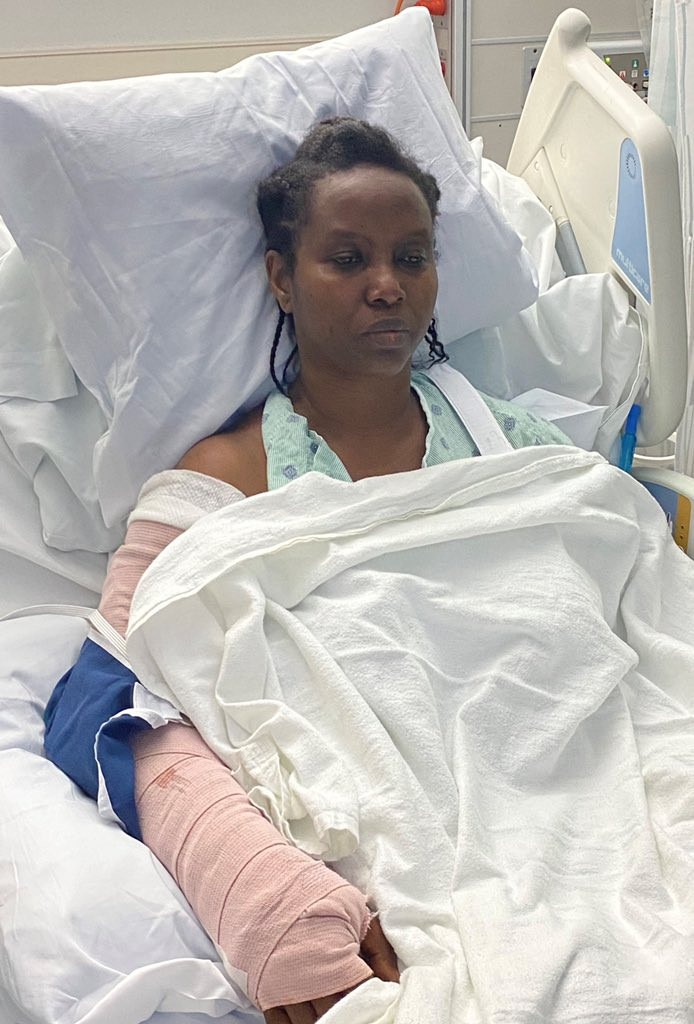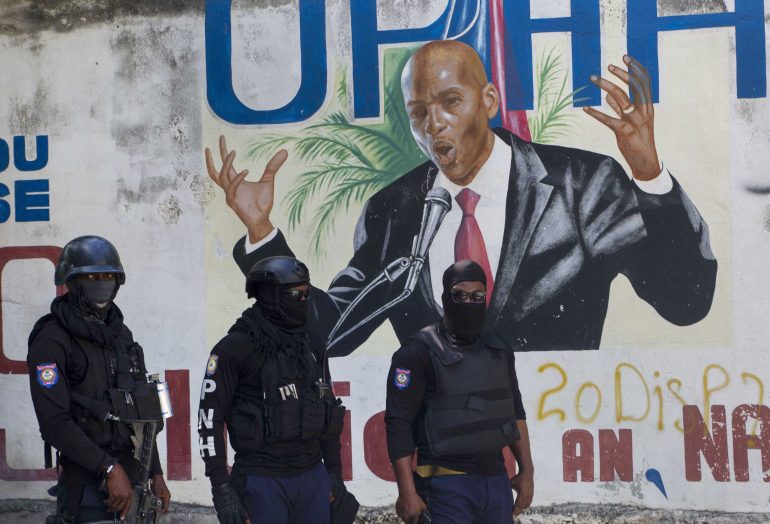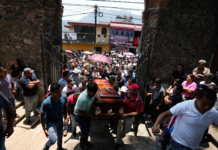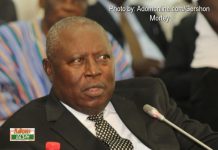
The wife of assassinated Haitian President Jovenel Moise has spoken for the first time since gunmen stormed the couple’s home in Port-au-Prince, saying the attack that killed her husband happened “in the blink of an eye”.
In an audio message posted on her official Twitter account on Saturday, Martine Moise called on Haiti not to “lose its way” after the attack that left her critically injured.
“I am alive, thanks to God,” Martine Moise said in Creole in the audio message, which Haiti’s minister of culture and communications, Pradel Henriquez, confirmed to the AFP news agency as being authentic.
“I am alive but I have lost my husband Jovenel,” she added.
Haiti declared a 15-day “state of siege” in the immediate aftermath of his killing, pledging to bring the perpetrators to justice.
Haitian authorities say an armed commando of 28 men – 26 Colombians and two Haitian-Americans – burst in and opened fire on the couple in their home. Seventeen people have been arrested so far and at least three suspects were killed, but no motive has been made public.
Martine Moise was transported to a Haitian hospital after the attack and was later evacuated to Miami, Florida, for more treatment.
“In the blink of an eye, the mercenaries entered my home and riddled my husband with bullets … without even giving him a chance to say a word,” she said in the audio message.
She also said the mercenaries were sent to kill her husband “because of roads, water, electricity and referendum as well as elections at the end of the year so that there is no transition in the country”.
“I am crying, it is true, but we cannot let the country lose its way,” Martine Moise said. “We cannot let his blood … have been spilled in vain.”

Power struggle
Jovenel Moise served as president since 2017 amid rising gang violence that has displaced thousands of people across the Haitian capital, Port-au-Prince, in recent weeks, and that also saw a journalist and prominent political activist fatally shot.
In recent months, the country had been rocked by large protests at which Haitians urged Moise to step down, saying his five-year term expired in February – a view shared by top jurists, civil society groups and the country’s political opposition.
But Moise insisted his presidency expired next year.
His death has thrown Haiti, which suffers from widespread poverty, into increased political instability – especially since before his death, Moise had been ruling by decree and was accused of stripping several key institutions of their ability to function.
On Friday, a group of legislators announced they had recognised Joseph Lambert, the head of Haiti’s dismantled Senate, as provisional president in a direct challenge to the interim government headed by Prime Minister Claude Joseph.
They also recognised as prime minister Ariel Henry, whom Moise had selected to replace Joseph a day before he was killed but who had not yet taken office or formed a government.
“After the president’s assassination, I became the highest, legal and regular authority because there was a decree nominating me,” Henry told the Reuters news agency in a phone interview late on Friday.
Joseph, who assumed leadership with the backing of police and the military, said he was “not interested in a power struggle”.
“There’s only one way people can become president in Haiti. And that’s through elections,” he said.






